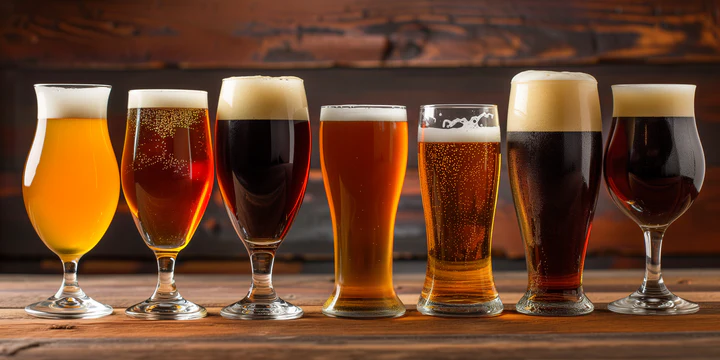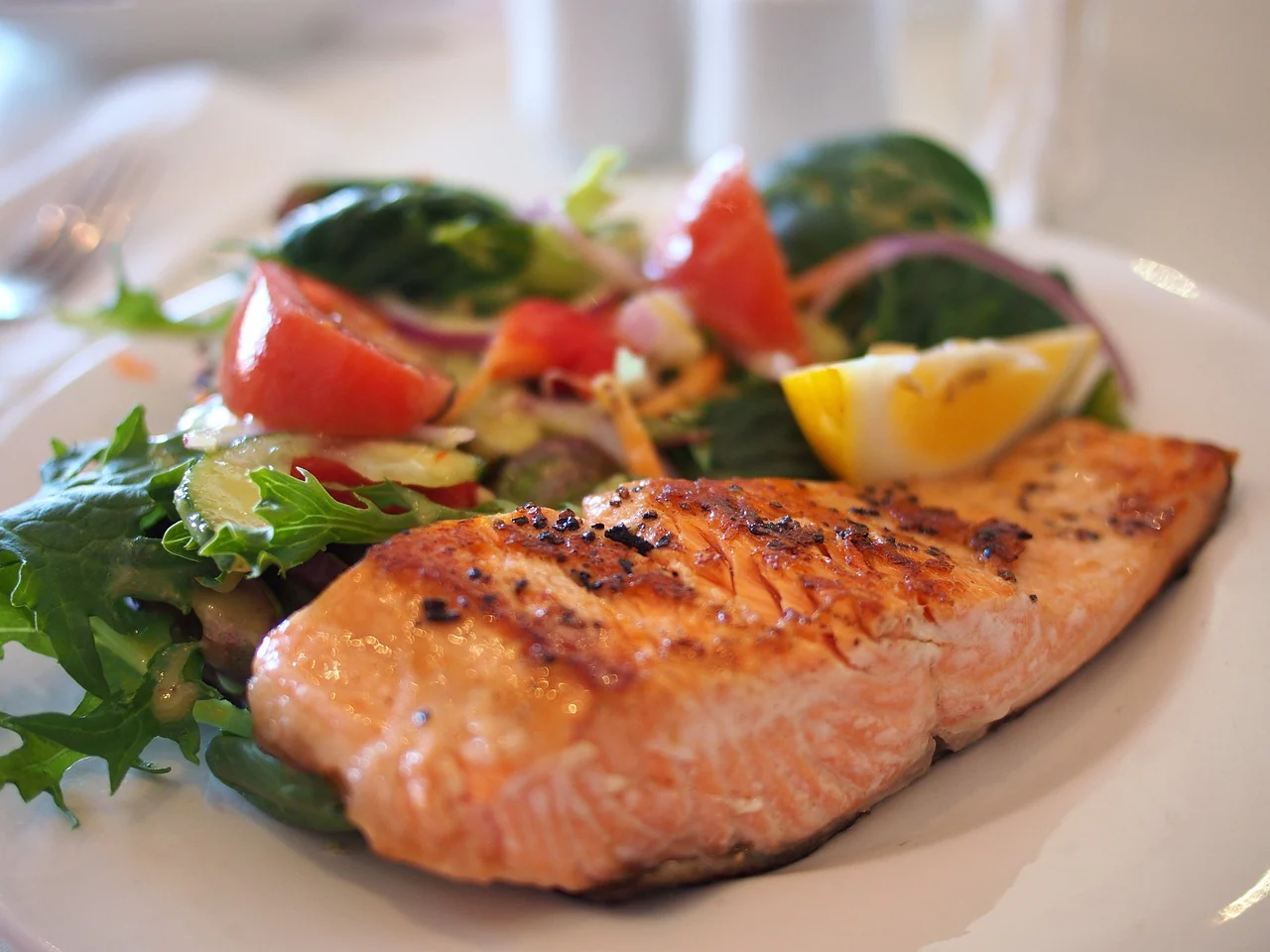
From the sunny beaches of Oz to the rugged coastlines of Kiwi-land, cracking a cold one with mates is a cherished tradition across the Tasman. But these days, with everyone talking health and waistlines, choosing the right brew can be a bit of a head-scratcher. So, let’s ditch the science jargon and dive into the world of normal, low-carb, and zero-alcohol beers to see which one suits your shout (that’s right, shout, not round 😉).
The Classic Brew: The Full-Strength Favourite
We all know and love the classic brew. It’s got that full-on flavour thanks to the heaps of carbs from the malted barley. Now, these carbs get munched on by yeast during the brewing process, turning them into alcohol and that satisfying fizz. This party also means a decent whack of alcohol (usually around 4-6% ABV).
The Gut Truth: Does Beer Blow Out Your Budget (and Your Waistline)?
Studies reckon there’s a bit of a link between sinking too many brews and packing on the kilos [1]. That’s because booze itself has a sneaky amount of calories (7 per gram to be exact), and all those stubbies (or longnecks for our Kiwi mates) can add up fast. Plus, let’s be honest, beers can give your hunger pangs a real hiding, leading to some serious post-pub scran (food).
Scientific Research:
- [1] Limburg, M. A., Lopez, M. I., & Lucan, S. C. (2011). Links between alcohol consumption and body weight regulation. Current obesity reports, 1(2), 130-139. Link
Your Bits and Pieces: How Does Beer Affect Your Body?
Going overboard on the beers can put a strain on your liver, increasing the risk of stuff like fatty liver disease and cirrhosis [3]. It’s not all bad news though. Some research suggests that a moderate amount of beer (think one for the ladies, two for the fellas, each day) might actually be good for your heart by upping your “good” HDL cholesterol [5]. But remember, everything in moderation! Heavy drinking can mess with your hormones too, potentially affecting your fertility and love life (ouch) [6].
Scientific Research:
- [3] Rehm, J., Greenfield, T. G., & Reith, J. (2016). Alcohol and liver disease. Nature Reviews Gastroenterology & Hepatology, 13(6), 330-339. Link
- [5] Mukamal, K. J., Jensen, M. K., Grobbe, D. E., Rimm, E. B., Hu, F. B., Willett, W. C., & Stampfer, M. J. (2003). Moderate alcohol intake and mortality from all causes, cardiovascular disease, and cancer in the Nurses’ Health Study. JAMA, 289(18), 2379-2387. Link
- [6] Emanuele, M. A., & Emanuele, M. A. (2002). Effects of moderate alcohol consumption on male and female reproductive hormones. Alcohol and alcoholism, 36(2), 232-237. Link
Brainwaves and Beers: Does Beer Make You Brilliant (or Batty)?
Alcohol is a bit of a downer, slowing things down in your brain. While a cheeky bevvy might help you relax, chucking back too many can lead to anxiety, depression, and forgetting where you left your phone (again!) [7]. If you’re already battling mental health woes, alcohol can make things even tougher [8].
Scientific Research:
- [7] Crean, J. F., Luo, F., & Swaab, H. (2000). Chronic alcohol abuse and neuroimmune function: Focus on human studies. Alcoholism: Clinical and Experimental Research, 24(2), 190-200. Link
- [8] Witte, T. C., & Braddock, P. D. (2005). Comorbidity. [Link]
The Low-Carb Legend: Fewer Carbs, Same Bloke (or Sheilas)?
Low-carb beers are all about giving you that classic beer taste with a lighter carb load. They achieve this trickery by using different grains, cutting fermentation time short, or adding special enzymes to break down complex carbs.
The Verdict on Low-Carb: Lighter on the Belly, But is it Better?
Low-carb beers typically have fewer calories (around 2-4% ABV) and carbs than your standard stubby. This makes them a potential option for those watching their weight, but the overall calorie difference might not be massive. The good news is the lower alcohol content might be a bit easier on your liver. As for other health benefits, more research is needed.
The Zero-Hero: All Brew, No Booze
Zero-alcohol beers are basically like the non-alcoholic cousin of the classic brew. You get the taste and refreshment, but without the alcohol buzz. These guys are made using various methods, like stopping the fermentation early, zapping the alcohol out, or using fancy enzymes.
The Skinny on Zero-Alc Beers: The Champion of Calorie Counting?
When it comes to the calorie count, zero-alcohol beers are the clear winner, often clocking in under 100 calories per bottle. This makes them a great choice for those watching their weight or cutting back on calories.
Your Body on Zero-Alc: All Good Things Must Come Without a Buzz?
The beauty of zero-alc beers is the complete absence of alcohol. This means no risk of liver damage and potentially some benefits for your heart health thanks to the lower calorie and sugar content.
So, Who Takes the Thong (or Jandals)? Picking Your Perfect Beer
There’s no one-size-fits-all answer, really. The “best” beer depends on your lifestyle and what you’re after. Here’s a cheat sheet to help you pick your poison (not literally!):
- Watching the Kilos: Zero-alc beers are your best bet with their low calorie count. Low-carb beers can also be part of a weight management plan, but be sure to practice moderation.
- The Active Aussie/Kiwi: If you’re a gym junkie or love hitting the trails, low-carb beers can be a good option for rehydrating after a workout without the high carb content of regular beers. Zero-alcohol beers are also a viable option, especially during training periods.
- The Social Butterfly: Regular beer offers the classic taste and experience for social gatherings. However, moderation is key to avoid the negative effects on weight, organs, and mental state. Low-carb beers can be a good compromise, offering a similar experience with potentially less impact on weight management.
- Pregnant or Breastfeeding Mamas: All forms of alcohol are completely off-limits for pregnant and breastfeeding women. Alcohol can pass through the placenta and breast milk, harming the developing baby.
- Mates with Mental Health Issues: Individuals with pre-existing mental health disorders like depression or anxiety should avoid alcohol entirely, as it can exacerbate symptoms. Zero-alcohol beers are a safe alternative that allows them to enjoy the taste of beer without the negative effects on mental well-being.
Beyond the Bottle: Cheers to a Balanced Lifestyle
Remember, beer is just one piece of the puzzle. Here are some additional factors to consider for a healthy lifestyle across the Tasman:
- Diet: Maintaining a balanced diet rich in fruits, vegetables, and whole grains is crucial for overall health, regardless of beer consumption.
- Exercise: Regular physical activity helps manage weight, improve heart health, and boost mood. Get out there and explore those beautiful beaches or hike those stunning mountains!
- Moderation: Regardless of the beer type, moderation is key. The Dietary Guidelines for both Australia and New Zealand recommend limiting alcohol consumption to one standard drink per day for women and two for men [9,10].
Scientific Research:
- [9] Australian Government Department of Health. (2020, December). Australian Dietary Guidelines. Link
- [10] Ministry of Health. (2020, November). New Zealand Eat for Health guide. Link
The Bottom Line
There’s no single “best” beer for everyone. Understanding the effects of each type allows you to make informed choices that align with your health goals and lifestyle. Whether you’re a social drinker, a health nut, or someone managing weight, there’s a beer option (or the option of no beer at all) that can fit your needs. Remember, a healthy lifestyle goes beyond just the beverage in your hand. Prioritize a balanced diet, regular exercise, and responsible consumption for a truly fulfilling experience.
Disclaimer:
This blog is for informational purposes only and should not be taken as medical advice. Always consult with a healthcare professional before making any changes to your diet or alcohol consumption habits.


